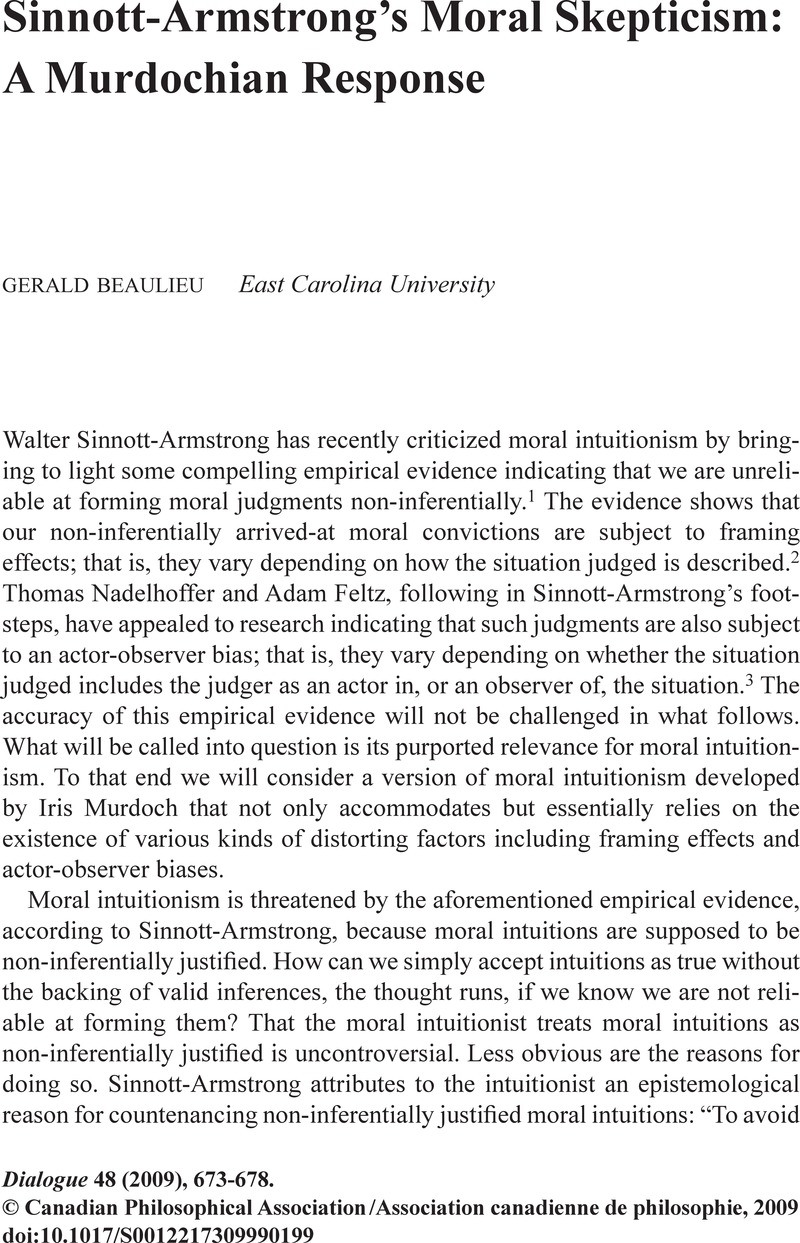Published online by Cambridge University Press: 01 September 2009

1 See Walter Sinnott-Armstrong, “Framing Moral Intuitions,” in Moral Psychology, Volume 2: The Cognitive Science of Morality, ed. Walter Sinnott-Armstrong (Cambridge: MIT 2008), 47-76.
2 What he actually says is that moral intuitions themselves are subject to framing effects. Moral intuitions just are “strong immediate moral belief[s]” according to Sinnott-Armstrong (ibid., 47). This way of speaking will be questioned in what follows.
3 See Thomas Nadelhoffer and Adam Feltz, “The Actor-Observer Bias and Moral Intuitions: Adding Fuel to Sinnott-Armstrong’s Fire,” Neuroethics 1: 133-44.
4 Sinnott-Armstrong, “Framing Moral Intuitions,” 49.
5 Ibid., 52.
6 In what follows, it will be shown that qualifying “moral intuition” with “veridical” is in fact superfluous for the moral intuitionist.
7 See Iris Murdoch, “The Idea of Perfection,” in Existentialists and Mystics (City: Penguin, 1999), 299-336. The example is presented at pp. 312-3, and commented on at pp. 313-6.
8 Ibid., 312.
9 Ibid., 313.
10 Ibid.
11 Ibid.
12 Sinnott-Armstrong, “Framing Moral Intuitions,” 52. Sinnott-Armstrong also discusses framing effects involving context as when, for example, the ordering of perceived features in the situation is altered. We will focus on word framing effect here.
13 Murdoch, “The Idea of Perfection,” 317-8.
14 Nadelhoffer and Feltz, “The Actor-Observer Bias and Moral Intuitions”: 134.
15 My thanks to Hope Clore, John Collins, and Mike Veber for helpful discussions.